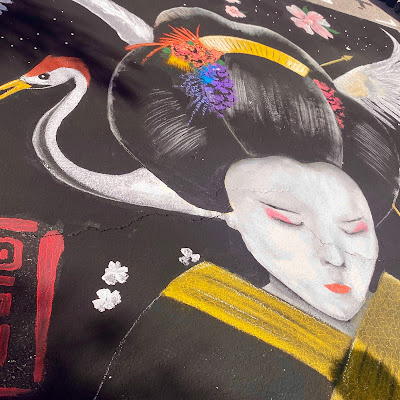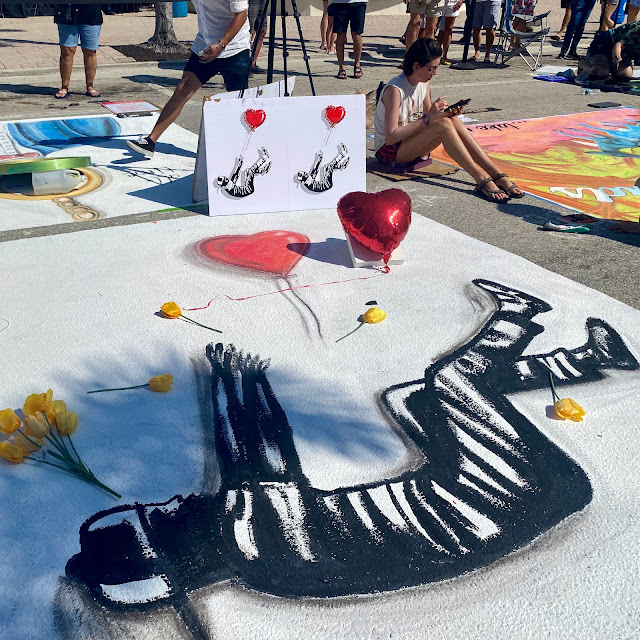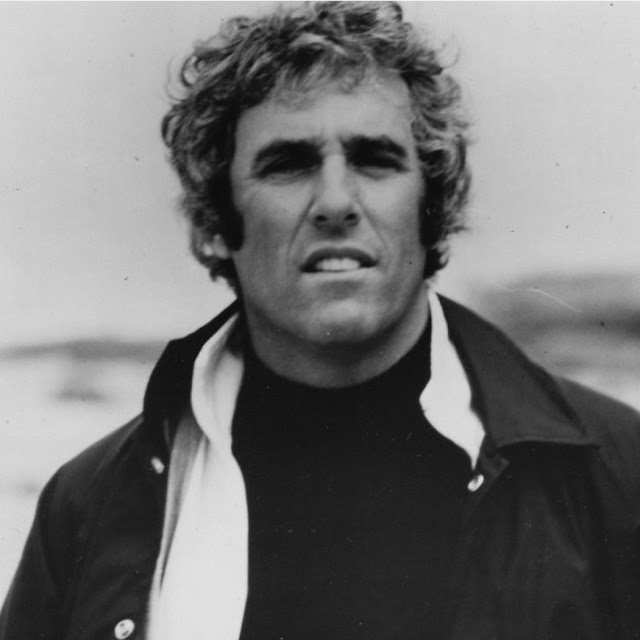Tuesday, February 28, 2023
Less Is Lost (4*)
Sunday, February 26, 2023
Artists @ Work
This work seems to be a bad Banksy knock-off.
Sunday, February 19, 2023
Mr. Wilder & Me (5*)
What an intelligently conceived and executed novel about Hollywood, one of my favorite topics. But Jonathan Coe also integrates timeless themes about aging and young love as shrewdly as I.A.L. Diamond, the titular director's grumpy writing partner, and ends his lovely, fact-based tribute with a punch line almost as sweet as the one Joe E. Brown delivers at the end of Some Like It Hot.
"You don't need to go to the movies to learn that life is ugly. You go because those two hours will give your life some little spark, whether it's comedy or laughter or . . . just, I don't know, some beautiful gowns and good-looking actors or something--some spark that it didn't have before. A bit of joy, maybe."
That's exactly the feeling this novel left me with.
Coe himself is no slouch when describing the taste of Brie, or the power of a good joke:
"You don't know the story of Nijinsky?" [I.A.L. Diamond] said. "He was a great dancer, but he went nuts. He ended up in a mental asylum suffering from terrible delusions. There's a funny story about that, as well."
This seemed unlikely, but Mr. Diamond was determined to tell it anyway.
"Billy was in a meeting once, with a producer. And he was telling him that he wanted to make a film about Nijinsky. So he told the producer the whole story of Nijinsky's life, and this guy was looking at him in horror, and saying, 'Are you serious? You want to make a movie about a Ukrainian ballet dancer who ends up going crazy and spending thirty years in a mental hospital, thinking that he's a horse?' And Billy says, 'Ah, but in our version of the story, we give it a happy ending. He ends up winning the Kentucky Derby.'"
And this time I did laugh, partly because I thought the story was funny, and partly because I liked the way Mr. Diamond told it, the way his eyes shone as he reached the punchline, the way that for him briefly, the telling of this joke brought an instant of strange joy and clarity to the world. And I realized for a man like him, a man who was essentially melancholy, a man for whom the ways of the world could only ever be a source of regret and disappointment, humor was not just a beautiful thing but a necessary thing, that the telling of a good joke could bring a moment, transient but lovely, when life made a rare kind of sense, and would no longer seem random and chaotic and unknowable. It may me glad to think that in the midst of the world's many intractabilities he still had this one source of consolation.
Amen! Great cover art, too.
























